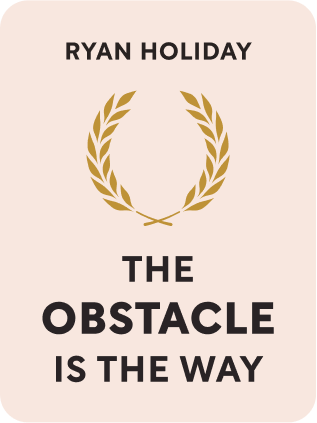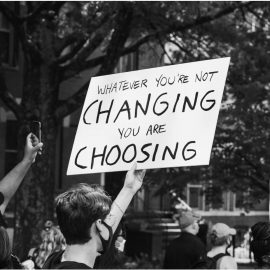

This article is an excerpt from the Shortform book guide to "The Obstacle Is The Way" by Ryan Holiday. Shortform has the world's best summaries and analyses of books you should be reading.
Like this article? Sign up for a free trial here .
Why is it important to help others in need? How can helping others solve their problems ease your own suffering?
According to Ryan Holiday, the author of The Obstacle Is the Way, working to solve the problems of others is one of the most effective ways to solve your own problems. However, many people narrowly focus on themselves and their problems, which clouds their perspective and makes it difficult to see things as they are.
Here is what Holiday has to say about the virtue of helping others in need.
The Virtue of Helping Others In Need
In challenging times, we tend to narrow our perspective and focus on ourselves, desperate to find a way to escape pain and fear. But our instincts of self-preservation sabotage us by making it more difficult to see events objectively. When we’re only looking out for ourselves, we interpret everything that happens as good or bad for us instead of neutral, as they really are. These subjective judgments cause the majority of our suffering.
By turning our attention outward and helping others in need, we can tap into an unlimited source of motivation and strength. Active service to others will renew you with a sense of purpose and self-worth, and you can seize this greater purpose anytime, anywhere. Negative emotions like anxiety and self-pity fade away when you discover a way to move forward and do good.
| Helping Others Unconditionally Is the Key to Happiness While Holiday frames the feeling of contribution to others as a source of motivation to achieve your virtuous goals, in The Courage to Be Disliked, Ichiro Kishimi and Fumitake Koga make the more extreme argument that these feelings of contribution are the essence of all happiness. However, they add the caveat: You need to help others unconditionally to be happy, asking nothing in return—not even gratitude. Kishimi and Koga assert that happiness is based on self-worth—whether or not you think you’re a “good person.” They argue that most people base their self-worth on external approval, using the praise of others as evidence that they’re “good” enough. For example, a child builds self-worth by getting good grades to earn their parents’ approval, then grows up and gets a fancy corporate job to earn the approval of their larger culture. However, Kishimi and Koga argue that this reliance on the approval of others is ultimately unfulfilling. If you need people to recognize how good you are, you’ll inevitably be unhappy whenever you’re denied this recognition. Holiday makes the point that worrying only about yourself hurts you by making it difficult to see events neutrally. Kishimi and Koga would agree, arguing that by seeking recognition, you’re only concerned about yourself even when you’re helping others. Even if you spend your entire life doing good, you won’t be happy if you’re doing it for external approval. Kishimi and Koga conclude that to find lasting happiness, you need to base your self-worth on contributing to the world in the way you think is best, even if no one approves or appreciates your actions. When you do this, people with different values—perhaps even family members—will dislike you, but to be happy, you need to work up the courage to be disliked. |

———End of Preview———
Like what you just read? Read the rest of the world's best book summary and analysis of Ryan Holiday's "The Obstacle Is The Way" at Shortform .
Here's what you'll find in our full The Obstacle Is The Way summary :
- Why you should think of any obstacles as opportunities
- How Stoicism can show you the way to overcome challenges
- How Theodore Roosevelt's struggle with asthma prepared him for future struggles






